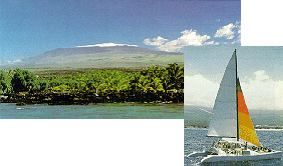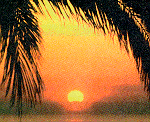
The City Of Hilo

ON THE ISLAND OF HAWAII
COMMUNITY PROFILE
The Island of superlatives: most affordable, most lush rainforest, newest land, most southern point in the United States and friendliest volcanoes. The community of Hilo is the financial, education center and the Island's soul.
Hawaii County is one of the most desirable areas in the world to vacation, to live and to retire! With almost spring-like conditions year-round and a wide variety of areas in which to live, work and play, Hawaii County has something for everyone! Hawaii County consists of urban, rural or tourist areas from which to choose. It also has a high proportion of undeveloped areas.
The South Hilo District is the business and government center of the Island of Hawaii, the largest Island in the chain. It is a geographic district some 398 square miles in size, with a population of approximately 45,000 and is the center for the retail activities for more than 75,000 people. The Island of Hawaii's total population as of June, 1995 was 137,531. Click here for more information on Hawaii County
The diversified economy of the Hilo area includes agriculture, livestock, trade, tourism, construction, education and government.

Most major business and government offices on the Island of Hawaii have their headquarters in Hilo. Hilo serves as the gateway to the Hawaii Volcanoes National Park. A modern, convenient airport and a deep water harbor are among the primary features of the community, which is the hub of the transportation for the Island.
GEOGRAPHY
The topography of the Hilo area is mostly sloping, from the tops of the scenic Mauna Kea and Mauna Loa mountains to the sea. Because
the Island of Hawaii is the newest island in the Hawaiian chain, there are few white sand beaches in the area. Hilo Bay, however,
boasts a superb black sand beach. The soil in Hilo is conducive to the growth of a variety of diversified agricultural products.
Earthquakes.
Because of the very nature of the volcanic Islands, Hawaii County experiences many earthquakes. Most of the earthquakes are in the
lower seismic range, but occasionally there are tremors of a more powerful nature.
WEATHER
Hawaii has a mild and temperate climate, relatively free from uncomfortable extremes. With the exceptions of rare tropical storms, one can rely on the repetition of the daily weather report. In the winter the temperatures average in the low-70's and mid-70's in the summer. One of the great advantages the East side of the island of Hawaii has is the abundance of rainfall. The droughts and water shortages that plague other parts of the State are very rare in Hilo. The Hilo area boasts some of the purest water in the world. The rainfall, averaging in excess of 128 inches a year, qualifies Hilo as the "Rainiest City in the U.S. " This warm, tropical rain falls primarily at night, and helps to make Hilo a lush, green community with fresh air and many waterfalls. The mean temperatures and rainfall for Hilo based on the 1997 statistics for each month are:
| Month | Temp | Rainfall |
|---|---|---|
| January | 73.1° | 2.33" |
| February | 72.7° | 7.85" |
| March | 73.3° | 19.25" |
| April | 74.0° | 6.03" |
| May | 75.0° | 10.75" |
| June | 76.7° | 22.7" |
| July | 77.4° | 19.38" |
| August | 78.0° | 4.75" |
| September | 77.7° | 8.98" |
| October | 74.3° | 8.86" |
| November | 76.8° | 12.64" |
| December | 72.4° | 8.10" |
Click here for local weather report
HURRICANES – Hawaii experiences hurricanes from time to time. The east side of this Island has been particularly blessed without any hurricanes for a long period of time. Many lenders will require hurricane insurance as part of the lending process. Hurricane season is from June 1st to September 30th.
TSUNAMIS – Tsunamis (or tidal waves) occur from time to time. Earthquakes any place in the Pacific Basin infrequently cause tsunamis. The Island is equipped with tsunami warning sirens along the coastal areas and provide several hours of warning to leave the beaches and other low-lying areas.
The front of the phone book covers all these types of emergencies and procedures to follow.
Hawaii is also equipped with the 911 emergency system.
GOVERNMENT
The Island of Hawaii is all one governmental unit, the County of Hawaii. Unlike some other jurisdictions, there are no
individual city or municipal governments.
The County has a Mayor and a nine member County Council.
The Hawaii Police Department and the Hawaii Fire Department have their headquarters in Hilo.
Taxation directly effecting people in Hawaii is of three basic types:
Real property taxes for the County are based on a tax rate of $8.50 per $1,000 valuation for all buildings in all classes except the
homeowner's class and for land classified as improved residential. Based on $1,000 valuation, the following apply: $4.45 tax rate for
land and building for a new classification called Home Owners Class and $10.00 for all lands in the other classifications. Properties
are assessed at 100% of fair market value.
Sales tax. Hawaii's sales tax is 4% on all goods and services.
State Income Tax. Hawaii's personal income tax ranges from 2 to 10% depending on income and filing status. Hawaii has the same rules
as federal law for the tax treatment of gains made on the sale of a principal residence.
EDUCATION
The District of Hilo has the University of Hawaii at Hilo, Hawaii Community College, and three major high schools.
The combined university units, UHH and HCC has an enrollment of 4820 with two and four year programs ranging from agriculture, arts and sciences, vocational and technical training. For more information about the University of Hawaii at Hilo go to: www.UHH.Hawaii.edu
Two public high schools Waiakea and Hilo, have 2,299 and 1,779 students respectively. A private school, St. Joseph's, is also located in Hilo. It serves youngsters from pre-school through high school.
To get a full school report on the Hilo and Puna area schools, click here.
RELIGION
Nearly every religion is represented in the Hilo community, ranging from Catholic to Buddhist, from Seventh Day Adventist to Baptist, Mormon to Lutheran.
MEDICAL SERVICES
Hilo boasts a modern acute care hospital the Hilo Medical Center, a $40 million facility opened in 1985.
More than 85 physicians of nearly every specialty are available in Hilo, as well as a variety of other health care professionals.
There are several HMO's from which to choose. These are: Hawaii Medical Service Association (HMSA), Kaiser Permanente, and Kapiolani HealthHawaii, Queens Island Care.
UTILITIES
Electric power for the Island of Hawaii is provided by the Hawaii Electric Light Co. which is headquartered in Hilo. The sources of electricity are from the utilization of both burned fuel and from geothermal. The average monthly residential electric bill on the Island of Hawaii is approximately $85.00.
GAS – There is no natural gas. Propane tank gas is provided by The Gas Company.
WATER – Water is either from the County supply or from a catchment system. Many people are not familiar with the catchment system. It is a collection of water from the roof to a catchment tank. The water is then pumped into the home for usage. Care of the catchment system is important and there are brochures to help you with its care. Private wells are not common.
TRASH COLLECTION –Hawaii County does not provide any public collection of trash. You will need to engage the services of a private collector.
The Hawaiian Telephone Company's operations for the Island of Hawaii are also headquartered in Hilo and serve the entire island. Cellular service is available from a variety of providers. Basic residential telephone bills average in the neighborhood of $35.00.
AUTOMOBILE INFORMATION
INSURANCE - It is required
Bring with you the following:
Motor Vehicle Record (MVR) or Affidavit from your present registration agency. This needs to be presented with your application for automobile insurance.
Bring a written statement from your present auto insurance carrier showing any claims experience over the past three years. This letter may be helpful in getting a lower insurance premium in Hawaii. It is not required.
REGISTRATION - Must Register 30 days after arrival.Bring with you the following:
Hawaii Safety Inspection Certificate. Inspection fee around $15.00. (safety inspection requires verification of current vehicle insurance policy)
Bill of lading from shipping company whose vessel landed the vehicle on the Island of Hawaii
Title (if no lien holder) and current vehicle registration.
If new vehicle – manufacture’s Certificate of Origin.
TAKE CARE OF YOUR MOTOR VEHICLE IN THIS ORDER:
INSURANCE COVERAGE
SAFETY INSPECTION CERTIFICATE
MOTOR VEHICLE REGISTRATION
Phone number: Motor Vehicle Registration (808) 961-8351 – County of Hawaii
ANIMAL QUARANTINE
Hawaii is a rabies free state. Hawaii’s quarantine law is designed to protect residents and pets from potentially serious health problems associated with the presence and spread of rabies. Trained animal caretakers are concerned about the animals in their charge and are available to help ease the transition to their new home in Hawaii.
Importation of dogs, cats and other carnivores into Hawaii is governed by Chapter 4-29 of the State of Hawaii, Department of Agriculture Administrative Rules. Animals are required to complete a 120 day confinement in the State Animal Quarantine Station. If specific pre-arrival and post-arrival requirements are met, animals may qualify for either a 5-day or a 30 day followed by a 90-day post quarantine observation period where the pet is released to the owner.
Resident guide dogs, signal and service dogs, whose owners required special medical treatment, may be eligible for reduced quarantine.
For further information you can contact the Department of Agriculture at this web site: www.hawaiiag.org/hdoa or call them directly at 808.483.7151.
SHOPPING

Hilo boasts a great variety of shopping opportunities, ranging from national chain stores to specialty shops with many unusual features. There are three major shopping centers in Hilo, plus the "Main Street" of downtown Hilo.
RECREATION
One of the finer aspects of life in Hilo is the recreational opportunities that are available.These opportunities are only limited by your
imagination and your budget.
The University of Hawaii at Hilo offers intercollegiate basketball, volleyball, baseball and softball. There is also a busy high school sports
program and many community sports activities.
In addition, fishing, hunting, skin diving, sailing, horseback riding and many other outdoor activities are available. There are white, black sand
beaches and even a green sand beach to explore. They are all within a two hour drive from Hilo. There is a County-wide park system, and camping is
permitted at some of the public beaches for a short period of time. Hawaii Volcano National Park is available for camping, hiking and viewing.
 This Island is cooled by gentle trade winds and is blessed with a year-round temperate climate, making it the perfect place to golf. World
renowned golf course architects have crafted championship courses from the Island's varied terrain, creating spectacular vistas and unparalleled
golf challenges. There are 19 championship golf courses on the Island each with its own special beauty.
In the winter you can occasionally ski atop Mauna Kea, our majestic mountain!
This Island is cooled by gentle trade winds and is blessed with a year-round temperate climate, making it the perfect place to golf. World
renowned golf course architects have crafted championship courses from the Island's varied terrain, creating spectacular vistas and unparalleled
golf challenges. There are 19 championship golf courses on the Island each with its own special beauty.
In the winter you can occasionally ski atop Mauna Kea, our majestic mountain!
HOUSING

Housing in the Hilo area is the most affordable in the Island chain. You can buy a three or four bedroom home for approximately
$150,000 or rent a two or three bedroom home for $800. The current median price is $120,000 for residences in the Hilo area. A real Hilo advantage
is affordable housing!
Life style choices are as varied as your taste and budget will permit. Available housing ranges from small apartments and condos to beach estates.
You can live in urban or rural environments , near the ocean or at the Volcano.
Ownership in Hawaii is either fee simple or leasehold.
Fee simple ownership is probably the most familiar form of ownership to buyers of residential property. A fee simple buyer acquires ownership of
the entire property, including both the land and the buildings. The fee owner does not pay ground rent, but does pay property taxes and maintenance
fees (condos). The fee owner has the right to possess, use the land and dispose of the land as they wish, sell it, to give it away, trade it, lease
it or pass it to others upon death.
Leasehold – the Leasehold interest is created when a fee simple landowner enters in an agreement called a ground lease with a lessee. A lessee buys
leasehold rights much as one buys fee simple rights. The leasehold interest differs from fee simple interest in several respects. The buyer of
residential leasehold property does not own the land and must pay ground rent. Second, the use of the land is limited to the remaining years covered
by the lease. Thereafter, the land returns to the lessor, and is called reversion. Depending on the provisions of any surrender clause in the lease,
the buildings and improvements on the land may also revert to the lessor. Finally, the use, maintenance and alteration of the leased premises are
subject to any restrictions contained in the lease.
TERMITES
Termites are ever present in tropical areas. A buyer of Hawaiian property should request a termite inspection and treatment (if required) prior to concluding the purchase of real estate. The inspection will determine the presence of any active termite infestation The termite company will recommend the appropriate treatment depending on the kind of termites found.
REAL PROPERTY TAXES
HOW PROPERTY IS TAXED
ASSESSMENTS
| PROPERTY CLASS | Tax Rate Per $1,000 Net Taxable Building | Tax Rate Per $1,000 Net Taxable Land | |
|---|---|---|---|
| 0 | Affordable Rental Housing | $6.15 | $6.15 |
| 1 | Residential | $10.05 | $10.05 |
| 2 | Apartment | $10.85 | $10.85 |
| 3 | Commercial | $10.05 | $10.05 |
| 4 | Industrial | $10.05 | $10.05 |
| 5 | Agricultural and Native Forest | $9.25 | $9.25 |
| 6 | Conservation | 10.85 | 10.85 |
| 7 | Hotel/Resort | $10.85 | $10.85 |
| 9 | Homeowner | $6.15 | $6.15 |
| Chapter 19, Article 11, Section 19-90 of the Hawai'i County Code provides that the tax rates be set on or before June 20 preceding the tax year for which property tax revenues are to be raised. | |||
EXEMPTIONS
For exemptions contact Hawaii County Real Property Tax office at hawaiipropertytax.com
Source: U.S. Bureau of the Census, 1990 Census of Population and Housing Unit Counts Hawaii, 1990 CPH-2-13 (March 1993), table 8; and Census 2000 Redistricting Data, (Public Law 94-171) Summary File; figures compiled and calculated by County of Hawaii, Department of Research & Development.
RESTAURANTS

Hilo has a great diversity of places to eat, as well as a number of exciting entertainment spots.
Mexican, Italian, Japanese, Thai, Filipino, Chinese, Hawaiian and traditional American food are all available in a variety of restaurants and a
number of night spots offer after dinner entertainment. There is also a wide selection of fast food restaurants and similar attractions.
NEWS MEDIA
The Hawaii Tribune-Herald, a 21,000 daily circulation newspaper, is published each morning in Hilo. In addition, there are other daily
newspapers, one from Kona and two from Honolulu, are available in Hilo. To read about local happenings check out this link
www.hilohawaiitribune.com
There are eight radio stations in Hilo, four AM and four FM.
All three national network television statements broadcast in Hilo, and a 48-channel cable system offers a wide selection of broadcast
opportunities from around the world. Television reception without cable is limited to two or three channels and reception is often poor.
Where cable is not available people have relied on satellite dishes to obtain better reception.
MORE ABOUT HAWAII
Hawaii Visitors & Convention Bureau


